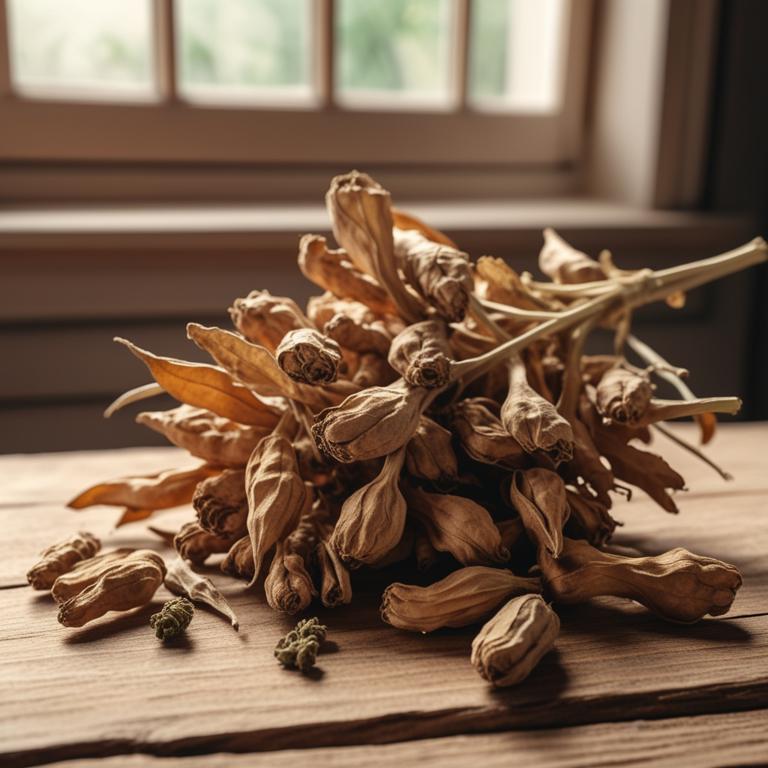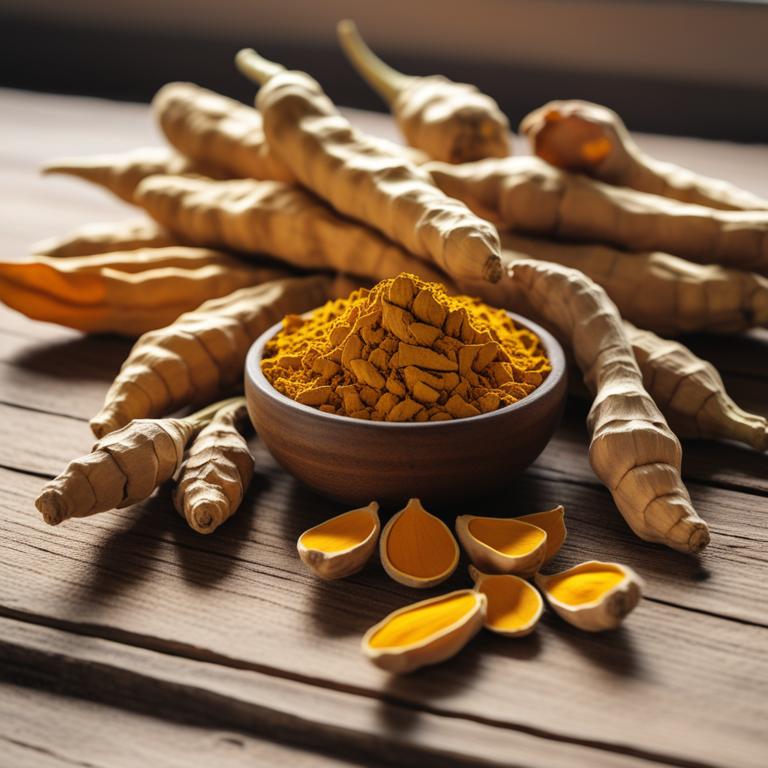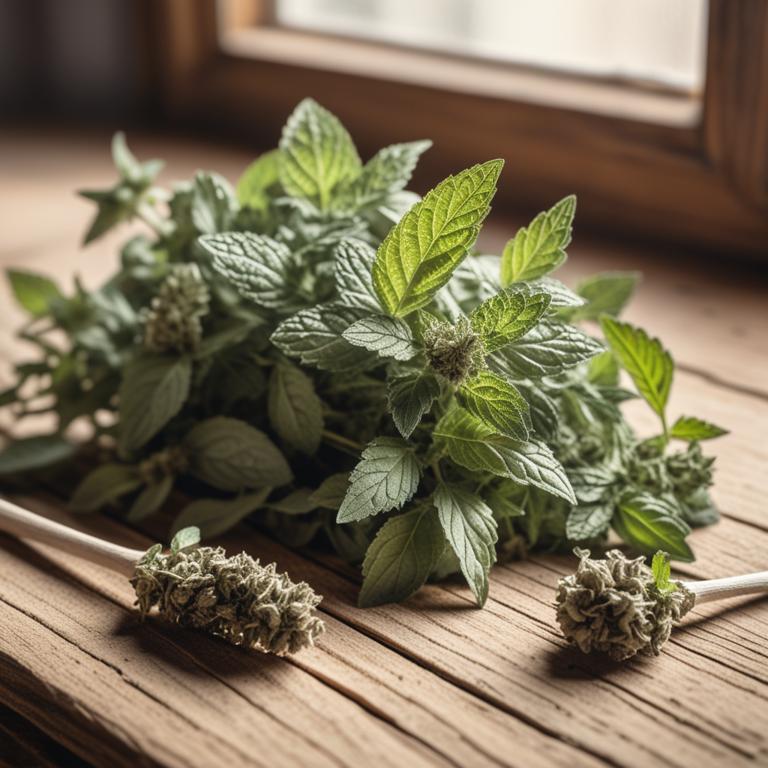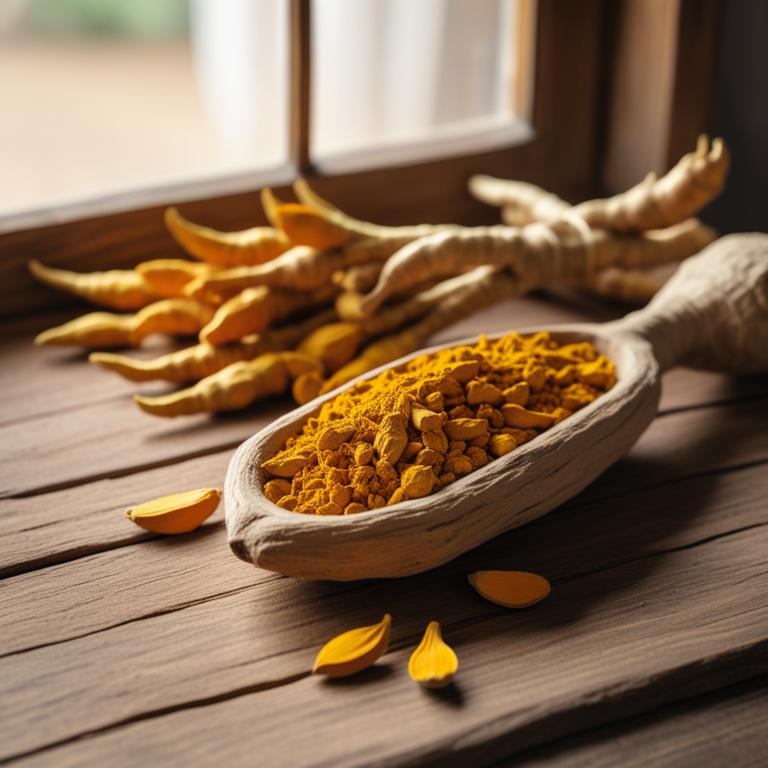Updated: Dec 1, 2024
Gas in Stomach Causes, Symptoms, and Natural Herbal Remedies for Relief
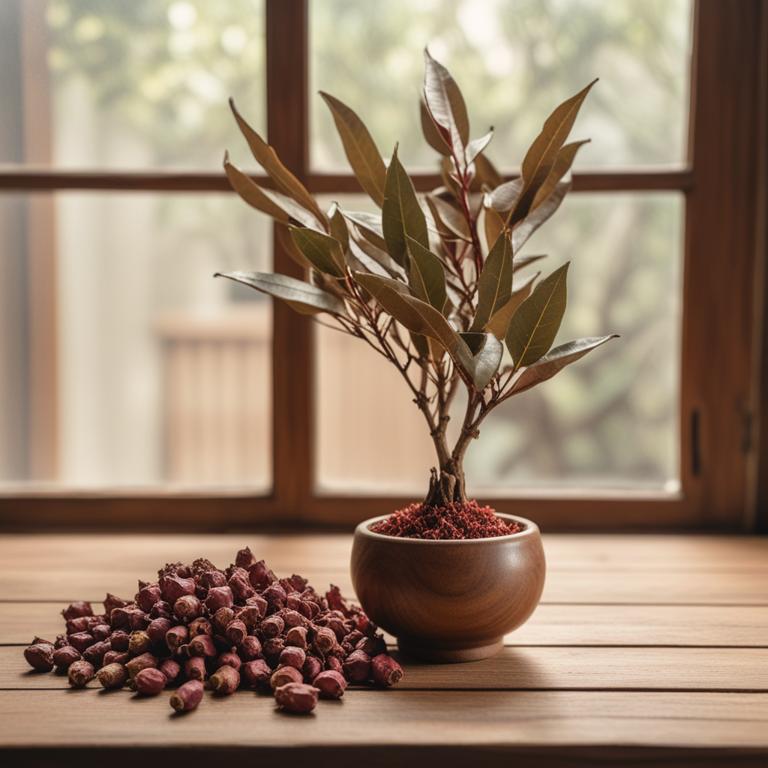
Gas in the stomach, also known as bloating, is a common issue that can affect anyone.
It's the buildup of gas in the digestive system, which can cause discomfort, pain, and swelling in the abdomen. This can make everyday activities like eating, walking, and even breathing feel like a struggle. The causes of gas in the stomach can be various, including eating certain foods like beans, cabbage, and broccoli, swallowing air while eating or drinking, and even having underlying medical conditions like irritable bowel syndrome (IBS). Fortunately, nature has provided us with some amazing herbs that can help alleviate this issue. One of the most effective herbs is peppermint, which has natural anti-inflammatory properties that can help soothe the digestive system and reduce bloating.
Another herb, ginger, is known for its digestive-aiding properties and can help reduce nausea and discomfort associated with gas. Fennel seeds, often used in teas, are also a popular remedy for gas in the stomach, as they have natural carminative properties that can help release trapped gas and alleviate bloating. You can use these herbs in various ways to help alleviate gas in the stomach. One of the simplest ways is to make a tea by steeping dried peppermint or fennel seeds in hot water. You can also add ginger to your meals or take it in supplement form.
Some herbal remedies also come in capsule or tablet form, making it easy to incorporate them into your daily routine.
Table of Contents
- What factors contribute to the presence of gas in stomach?
- What are the benefits of applying herbs to alleviate gas in stomach?
- What medicinal herbs are often prescribed for gas in stomach symptoms?
- What are the best herbal preparations for gas in stomach?
- What herbs should be avoided by individuals with gas in stomach?
- FAQ
What factors contribute to the presence of gas in stomach?
The main causes of gas in stomach are quite straightforward.
One of the main culprits is beans, particularly those like kidney beans and chickpeas that are high in a type of sugar called raffinose. When we eat these beans, they're not fully broken down in the small intestine, so they pass into the large intestine where bacteria feed on them, producing gas as a byproduct. Some people are also more prone to stomach gas due to underlying medical conditions like irritable bowel syndrome (IBS), celiac disease, or gastroparesis. These conditions affect the digestive system's ability to move food through the gut, leading to a buildup of gas. Cruciferous vegetables like broccoli are another common cause of stomach gas. They contain a type of sugar called raffinose, similar to beans, which can be difficult for the body to digest.
When bacteria in the large intestine feed on this sugar, they produce gas, often leading to bloating and discomfort. Lactose, a sugar found in milk and other dairy products, can also cause stomach gas in people who are lactose intolerant. This is because they don't produce enough of the enzyme lactase, which breaks down lactose into easily absorbed sugars. When lactose remains undigested, it ferments in the large intestine, producing gas. Wheat and other grains can cause stomach gas in people with celiac disease or non-celiac gluten sensitivity. In these conditions, the immune system reacts to gluten, a protein in wheat, leading to inflammation and impaired digestion in the small intestine. This can cause gas, bloating, and other digestive symptoms.
These are just a few of the main causes of stomach gas, but they're some of the most common ones.
What are the benefits of applying herbs to alleviate gas in stomach?
Using herbs for gas in the stomach can be very helpful.
One of the main benefits is that they can quickly ease discomfort and bloating. These herbs work by reducing inflammation and relaxing the muscles in the digestive tract, which can help to break down gas and move it out of the body.
This can make you feel better in no time. Some herbs can also help to calm your stomach and reduce nausea, which can be a relief if you're feeling queasy. Additionally, many of these herbs have antibacterial properties, which can help to prevent the growth of bad bacteria in the gut that can cause gas and discomfort.
By using these herbs, you can naturally and safely manage gas and bloating, without relying on medications or other treatments.
What medicinal herbs are often prescribed for gas in stomach symptoms?
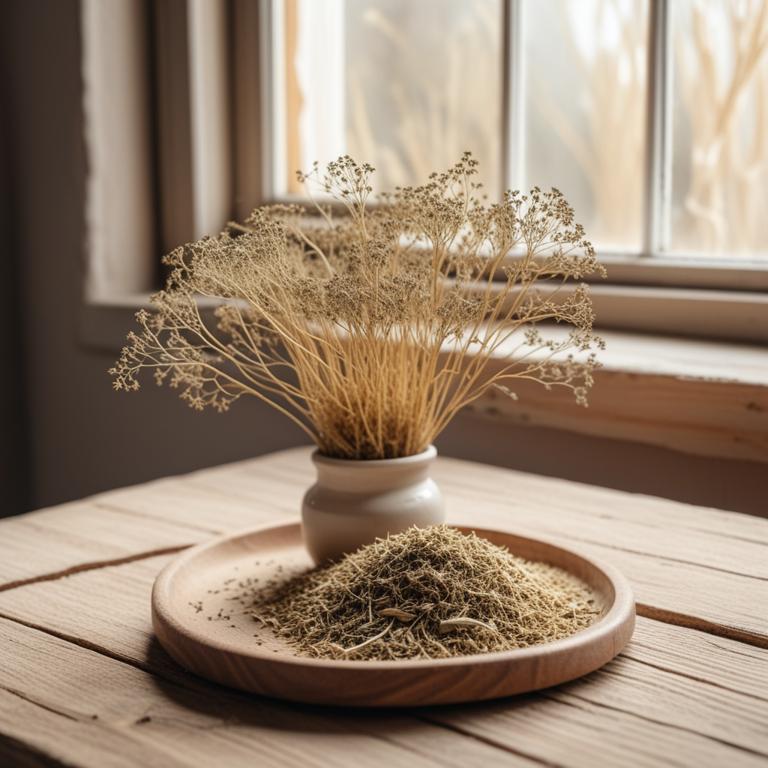
If you're struggling with gas in your stomach, you might want to consider trying some herbs that have been used for centuries to help with this issue.
Foeniculum vulgare, also known as fennel, is one of them. It contains a compound called anethole that helps to relax the muscles in the digestive tract and reduce inflammation, making it easier for gas to pass through. Another herb that can help is Zingiber officinale, or ginger, which has natural anti-inflammatory properties that can soothe the digestive system and ease bloating. Cuminum cyminum, or cumin, is another herb that's commonly used to help with gas.
It contains a compound called cuminaldehyde, which has antibacterial properties that can help to break down food in the digestive system and reduce the amount of gas produced. Coriandrum sativum, or coriander, is similar to cumin and also contains compounds that can help to reduce gas and bloating. Finally, Pimpinella anisum, or anise, is another herb that's been used to help with digestive issues. It contains a compound called anethole, just like fennel, which helps to relax the muscles in the digestive tract and reduce inflammation.
These herbs work in different ways to help with gas, but they all share a common goal: to make digestion easier and more comfortable.
What are the best herbal preparations for gas in stomach?

Herbal preparations are a great way to ease stomach gas because they're often gentle on the digestive system.
A decoction is a liquid herbal preparation made by boiling herbs in water, which can help release their active ingredients. This method is especially good for roots and bark, which are harder to extract than leaves. An infusion is similar to a tea, but it's made by steeping herbs in hot water for a shorter time. This is a good way to use delicate herbs that might get damaged by boiling.
Tinctures are liquid herbal extracts that are made by soaking herbs in a solvent like alcohol or glycerin. They're highly concentrated and can be very effective for stomach gas, but you should only use a few drops at a time. Herbal tea is a popular way to ease stomach gas because it's easy to make and many people already drink tea regularly. You can use pre-made tea bags or make your own by steeping loose herbs in hot water. Some herbs, like peppermint and ginger, are better suited to being taken as a capsule or tablet.
This way, you can get a precise dose of the herb without having to taste it or deal with its texture.
Additional Resources:
What herbs should be avoided by individuals with gas in stomach?
If you have gas in your stomach, it's best to avoid some herbs that might make it worse.
For example, Silybum marianum, also known as milk thistle, can be a problem. The seeds of this plant contain compounds that can irritate the digestive system and cause more gas. Lavandula angustifolia, commonly known as English lavender, is another herb to be cautious with. While it's often used for relaxation, its essential oils can have a calming effect on the body, but this can also slow down digestion, leading to more gas and discomfort.
Aristolochia clematitis, also known as birthwort, is not something you want to consume if you have gas issues. This plant contains compounds that can cause inflammation in the digestive tract, making gas and bloating even worse. Glycyrrhiza glabra, also known as licorice root, can also be problematic. It can cause your body to hold onto water, which can put extra pressure on your digestive system and lead to more gas.
Cassia auriculata, a plant commonly used in Ayurvedic medicine, contains compounds that can stimulate the digestive system, but this can also cause more gas and discomfort in people who already have gas issues.
FAQ
Are there any specific herbs that can prevent gas in stomach?
Ginger is known to help with stomach gas.
Its natural compounds can ease digestion and reduce bloating. Peppermint oil also has a calming effect on the stomach, making it easier to digest food.
Both herbs can be consumed as tea or added to meals for relief from discomfort.
Is it safe to use herbal remedies for gas in stomach during pregnancy?
When it comes to using herbal remedies for gas during pregnancy, it's best to be cautious.
Some herbs, like peppermint and ginger, are often used to ease digestive issues, but their safety for pregnant women isn't fully understood.
It's also possible for herbal remedies to interact with other pregnancy-related health issues, so it's crucial to be aware of the potential risks involved.
Are there any herbs that can reduce the frequency of gas in stomach?
Some herbs, like peppermint and ginger, may help reduce stomach gas.
Peppermint has a soothing effect on the digestive system, while ginger can calm inflammation in the stomach. Both herbs are natural relaxants that may ease gas and discomfort.
They can be consumed as tea, taken in supplement form, or added to food.
Can i combine different herbal remedies for gas in stomach?
You can combine different herbal remedies for gas in the stomach, but be cautious.
Some herbs, like peppermint, can soothe, while others, like ginger, can help digest. When combining, start with small amounts and observe how your body reacts.
You may find relief, but it's also possible that some combinations won't work for you.
Related Articles
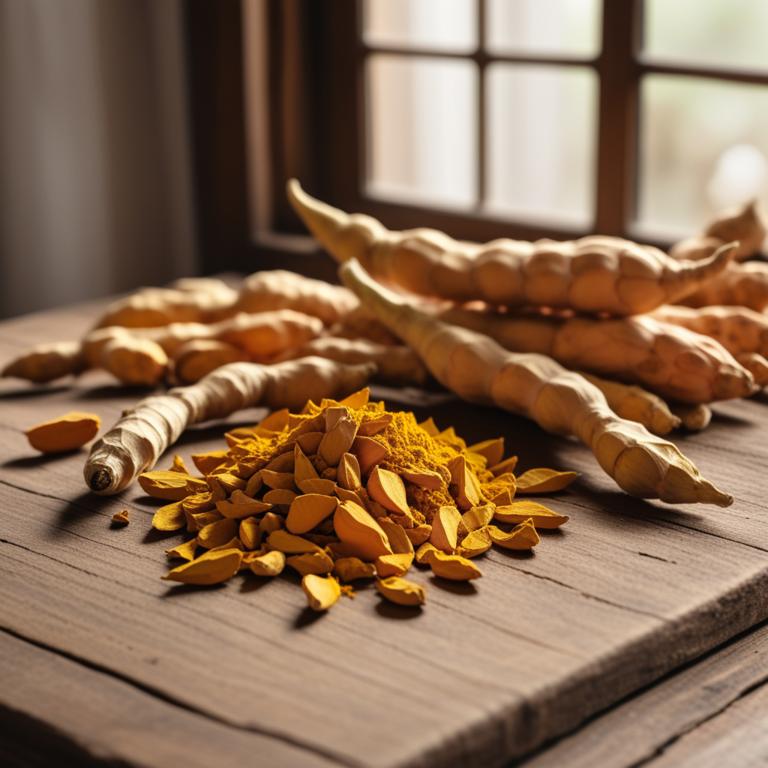
Cholecystitis: Causes, Symptoms, Medicinal Herbs, and Therapeutic Herbal Preparations

Unlocking the Secrets of Difficulty Eating: Medicinal Herbs and Herbal Preparations for a Balanced Diet
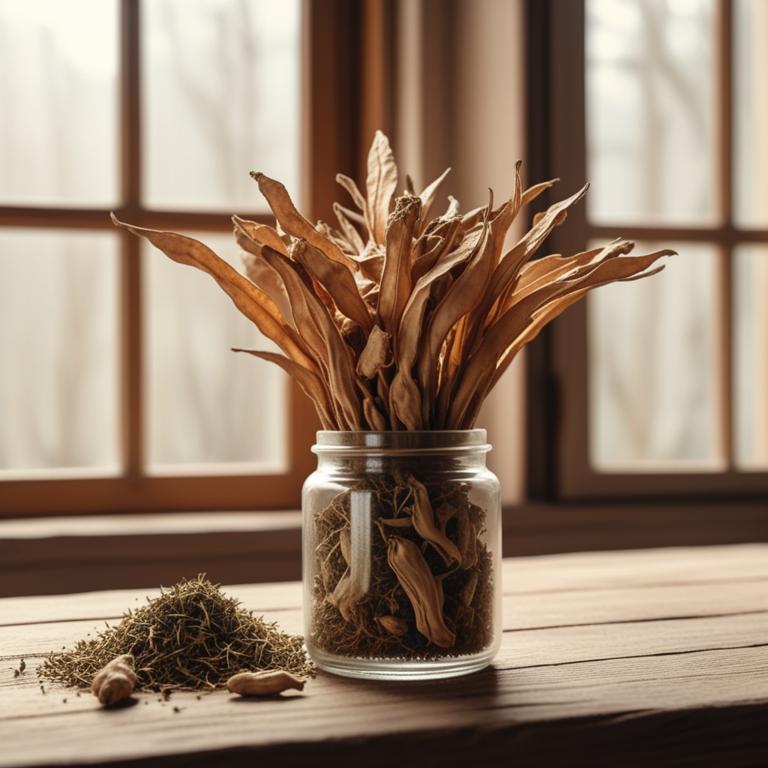
Overcoming Bitter Taste in Mouth: Natural Causes and Herbal Remedies

Jaundice Causes and Natural Herbal Treatments Explained
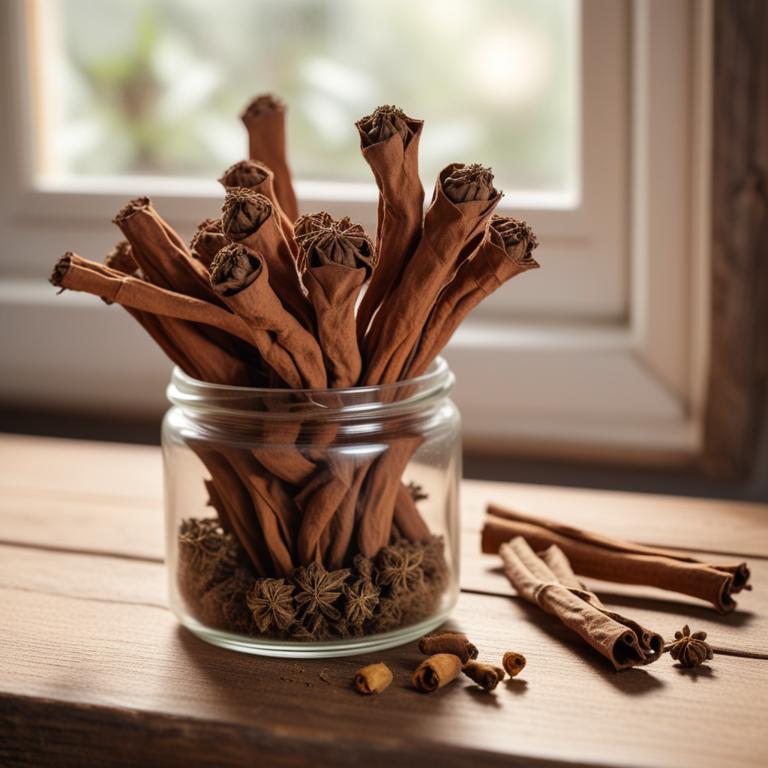
Inflammatory Bowel Disease: Exploring Causes, Medicinal Herbs, and Herbal Supplements
